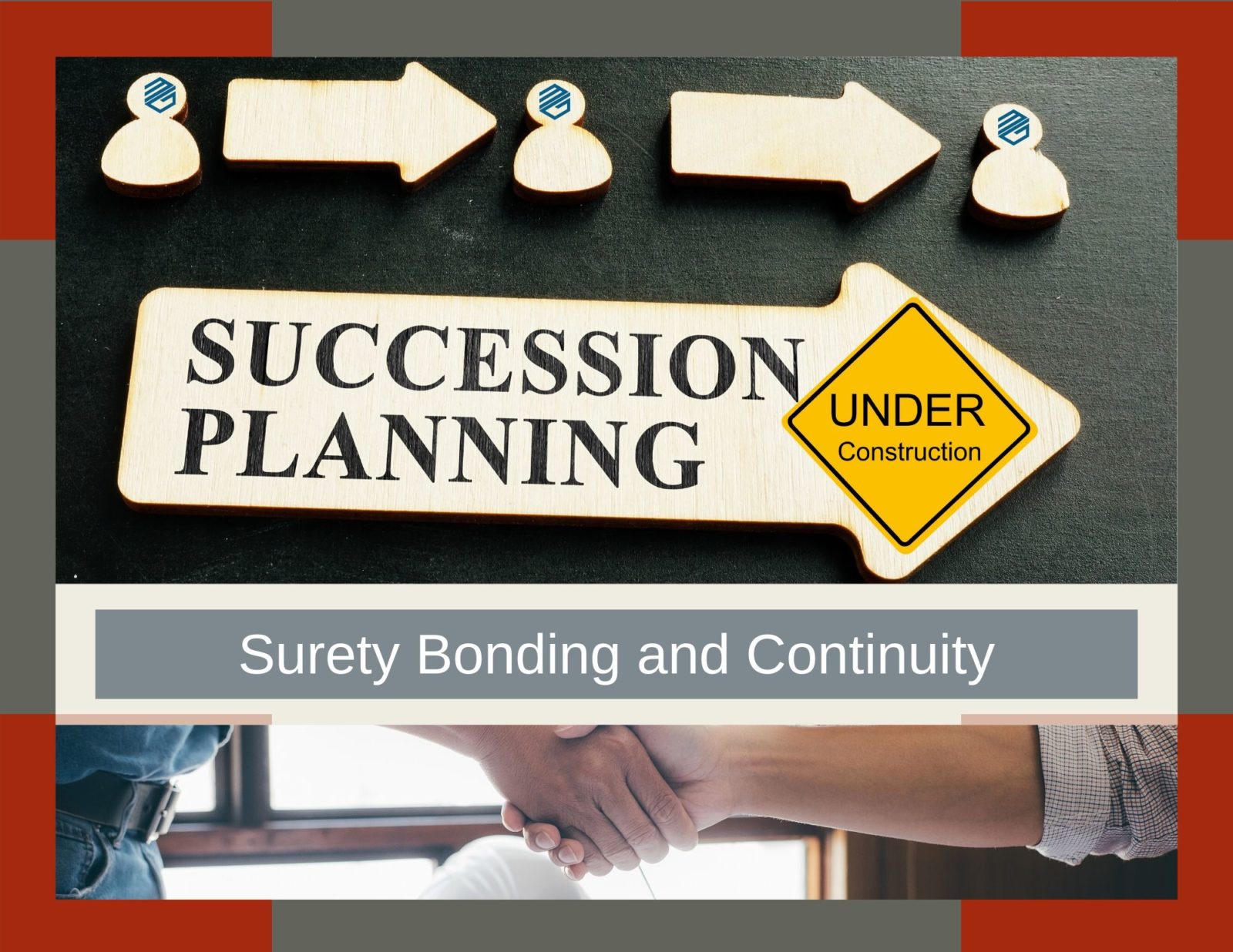Transitioning any business can be a challenge but maybe even more so in construction. You must decide whether to sell to a family member, key employee(s), or even a third party. What is the firm worth? Is the value in intangible customer relationships, industry knowledge or hard assets such as equipment? How will the new buyer pay for these things? Will there be new debt for the company, or will ownership have to buy themselves out with their own money? These are all questions that the construction company and its owners will have to answer. Unfortunately, according to the latest survey by FMI in 2017, only 22% of contractors have done formal succession planning for their business. This can be problematic for many reasons but poor succession planning can destroy a contractor’s surety bond credit. So why would a surety bond company care about succession planning and continuity?
Personal Indemnity
The first reason why your surety bond company cares about your continuity plan is because they want to know how bonded work will get finished without you. After all, performance bonds and payment bonds are guaranteeing that you will complete the project and pay your bills, so what happens if you are not around? Usually in a sale, this is addressed in the contract. The new buyer or existing owner can have the responsibility to finish all existing backlog. However, keep in mind that on a project with a contract surety bond, the surety bond company may have the old owner’s personal indemnity. This will remain even if you sell to a new buyer. Surety bond companies rarely let indemnitors off in these situations. Also, keep in mind that bonded liability may not be over with the completion of a project. Watch out for maintenance provisions that may last longer. Also, a best practice would be to contact the surety bond company in writing after a sale and request that their indemnity be released. I’ve seen contractors who did not do this and were still obligated to pay for the new company’s mistakes.
Life Insurance
Remember, continuity is not just for a sale but also an untimely death or disability of a key owner. The surety bond company does not want to be in business with your spouse. Imagine that a key owner dies and the spouse inherits the company. The spouse has no knowledge or interest in construction but starts making key decisions. Perhaps this leads to key superintendents and people leaving the company or perhaps the new ownership starts taking out cash. These are things that could lead to financial loss for the surety bond company. A better practice would be to have life insurance in place for the key owner that would buy out the spouse or other owners. Additionally, consider key men or work completion agreements to be in place with your key workers. This gives the surety bond company comfort that they will stay around and complete the projects if something happens.
Lock Up Key Employees
Regardless of whether you sell your construction company, or something else happens, it is important to make sure your key people stay around to finish your backlog. This is a vital part of succession planning. Consider plans to keep key employees such as ownership, profit sharing, ect. If an employee such as a superintendent is vital to completing a specific project, the surety bond company may ask that you get a work completion agreement from that employee before they issue the performance and payment bonds. The purpose of these agreements is to make sure the employee(s) stay around to finish the project. A new buyer may also have this requirement. Consider that the employee would be giving up their freedom and you may need to incentivize them to do so.
Planning Early
Lastly, the surety bond company will be concerned about your continuity plan because they can drain the liquid assets of the company if not done properly. One of the biggest mistakes we see contractors make is waiting too late to start the planning process. By that point, they are often forced to sell to a new buyer who must finance the transaction through bank debt. This often creates heavy leverage and goodwill on the balance sheet and can hurt the new company’s ability to obtain surety bonds. One potential solution to this is the SBA Bond Guarantee Program. However, a better route is to get started on planning early. MG Surety Bonds can recommend ways to handle your ownership transition while minimizing the impact on your surety bond program. A couple of great ways are Employee Stock Ownership Plans (ESOPs) and OldCo/NewCo. However, many of these strategies take time to execute and fund properly.
You may think your continuity planning has little to do with getting surety bonds, but you would be wrong. Surety bond companies are very interested in how you transition your business whether it is by planned retirement or other unplanned reasons. The best contractors start working on this early. Give us a call and we can provide ideas and solutions to help minimize the impact on your surety bond capacity. We want to be your surety bond broker for life!

